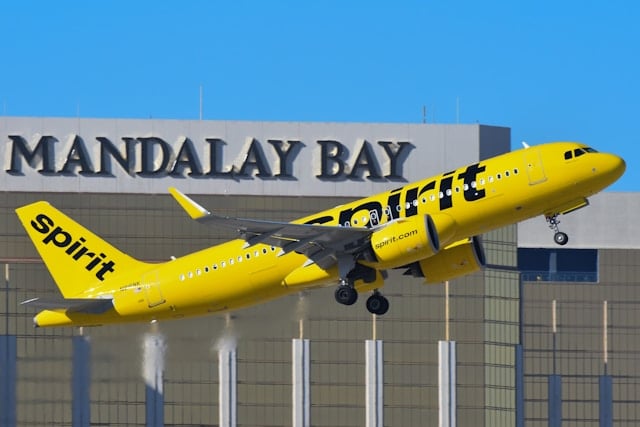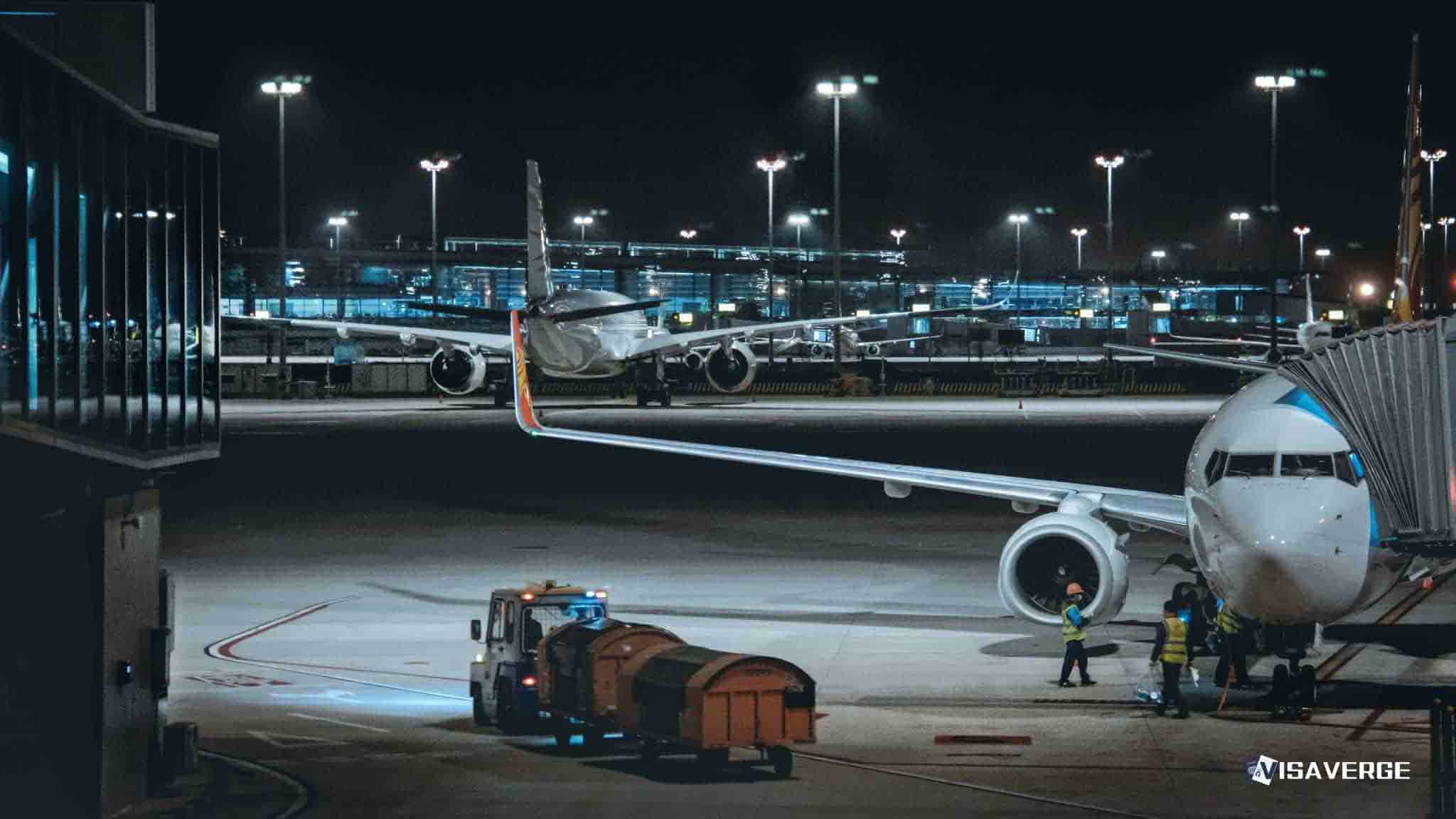(UNKNOWN) Spirit Airlines has canceled commitments for more than 60 Airbus jets and won a $150 million settlement from AerCap, its largest aircraft lessor, in a court-approved deal that reshapes the carrier’s fleet and reduces future obligations during Chapter 11 proceedings. The settlement rejects leases on 27 Airbus aircraft, resolves disputes between the companies, and reworks future deliveries, marking a decisive step as Spirit tries to cut costs, stabilize operations, and survive as a smaller airline.
Under the agreement, which the U.S. Bankruptcy Court approved, AerCap will pay Spirit $150 million and accept the rejection of 27 leases tied to Airbus aircraft. The settlement also covers a separate dispute over 36 Airbus jets that had been scheduled for delivery between 2027 and 2028, reducing legal risk and allowing both sides to move forward.

Spirit’s order book is shrinking sharply:
- The airline has canceled at least 52 firm Airbus orders, with options for 10 more, taking total cancellations or deferrals to “over 60” aircraft.
- Despite the cuts, the revised framework still allows for the future delivery of 30 aircraft, a sign Spirit is not abandoning Airbus entirely even as it abandons near-term growth.
Fleet retrenchment and scale of the pullback
The fleet retrenchment is sweeping. Spirit is in the process of returning at least 114 jets to lessors—more than half of its current fleet—while it exits unprofitable leases and pares back operations.
- As of June 2025, Spirit operated 215 Airbus aircraft, underscoring how large the pullback is for a carrier built around dense seating, fast turnarounds, and high utilization.
- Analysis by VisaVerge.com notes this capacity reset reflects a broader industry trend of rebalancing supply to match weaker demand and rising costs.
Bankruptcy moves reshape routes, fleet, and finances
This is Spirit’s second bankruptcy in less than a year, driven by overcapacity in key markets, soft yields, and high operating costs. Management says it aims to emerge “much smaller and stronger,” focused on core routes where the airline can earn steady returns.
Key operational and financial actions under the restructuring:
- Exiting more than a dozen airports and suspending roughly 40 routes, with further changes possible as negotiations with other lessors continue.
- Rejecting airport and ground-handling leases to trim fixed expenses.
- Securing up to $475 million in new financing to support operations during the case.
The court’s approval of the AerCap settlement provides immediate clarity on a contentious issue. AerCap had claimed defaults on 37 aircraft and was central to Spirit’s second bankruptcy filing in 2025. By resolving disputes, rejecting 27 leases, and resetting the delivery pipeline, both parties remove uncertainty that could have lingered for months.
For Airbus, canceled orders mean slower near-term deliveries to Spirit, though the 30 future aircraft under the revised agreement indicate an ongoing, but limited, relationship once Spirit’s finances stabilize.
Operational impacts:
- Fewer seats and thinner schedules will reduce connectivity for budget travelers.
- Potential job adjustments across airport service vendors, maintenance providers, and ground operations teams.
- Travelers should expect route suspensions, aircraft retirements, and a leaner network focused on markets with stronger demand.
What the changes mean for workers, families, and immigration concerns
Large-scale airline restructurings ripple through airport ecosystems and affect employees, contractors, and families—including people with temporary work authorization.
- Spirit emphasizes flights continue during Chapter 11, but route and fleet cuts can cause scheduling changes or reduced hours.
- Individuals whose work depends on the airline should closely monitor company notices and seek personal legal guidance if employment is impacted.
For noncitizen workers in the United States who experience job loss or reduced hours:
- Review federal guidance on options after termination or business changes.
- U.S. Citizenship and Immigration Services provides an overview of time-limited options for certain nonimmigrant workers on its official page. That resource can help people discuss next steps with qualified counsel.
- Readers can visit USCIS’s “Options for Nonimmigrant Workers Following Termination of Employment” for official information at https://www.uscis.gov/working-in-the-united-states/information-for-employers-and-employees/options-for-nonimmigrant-workers-following-termination-of-employment.
Note: That resource does not speak to Spirit Airlines specifically; it explains general, nationwide rules relevant to workers who face sudden changes at any employer.
For families and travelers:
- Route cuts can disrupt travel plans, especially for those relying on affordable fares for family visits or immigration appointments.
- If a flight disappears, rebooking early often yields better options.
- People with urgent travel tied to immigration deadlines (consular interviews, biometrics) should:
- Consider backup itineraries.
- Keep copies of appointment notices.
- Contact the relevant agency to reschedule if a cancellation causes a missed appointment.
- Maintain documentation that shows why the appointment was missed.
Spirit’s restructuring resources and contact points:
- Restructuring site: https://www.spiritrestructuring.com
- Restructuring information line: (855) 952-6606 (U.S. toll free) or +1 (971) 715-2831 (international)
These channels are the best places to check official notices about route suspensions, airport exits, and booking changes affecting travel for immigration-related events.
Practical takeaways for travelers and workers
From an industry standpoint, the AerCap settlement and Airbus order cancellations signal that capacity growth in the ultra-low-cost segment is cooling. This may:
- Ease price pressure on some routes.
- Reduce options in smaller markets.
Practical advice:
- Check schedules early and compare alternative carriers.
- Consider travel insurance when plans are tied to time-sensitive immigration steps.
- For employees and contractors, plan ahead:
- Keep personal records current (ID, work authorization).
- Ensure you can receive employer communications quickly.
- If employment changes arise, consult reputable sources and licensed professionals about impacts on immigration status or benefits.
Spirit’s path forward is a race to lower costs and rebuild trust in schedule reliability while keeping cash burn under control. Returning at least 114 jets, canceling over 60 Airbus aircraft from its order book, securing up to $475 million in financing, and focusing on 30 future deliveries sets a new baseline. Whether that baseline supports a durable, smaller Spirit will depend on demand trends, fuel costs, and the airline’s ability to sustain cost discipline after court supervision ends.
The court approvals give management breathing room, but more negotiations with other lessors could reshape the fleet further. Each incremental lease rejection or renegotiation affects:
- How many planes Spirit flies
- How many seats it sells
- Which airports keep service
For airport communities that experienced rapid growth, the swing back to austerity is a reminder that balance sheets drive route maps. In this case, Spirit Airlines, AerCap, and Airbus have reached a settlement designed to cut risk now, even if that means slower growth later.
This Article in a Nutshell
Spirit Airlines reached a court-approved settlement with AerCap that includes a $150 million payment to Spirit and rejection of 27 Airbus leases, resolving disputes over an additional 36 jets scheduled for 2027–2028. The agreement accompanies cancellations of at least 52 firm Airbus orders (and options for 10 more), with total cancellations or deferrals exceeding 60 aircraft, while allowing 30 future deliveries. Spirit plans to return at least 114 jets—more than half its 215-aircraft fleet—exit multiple airports, suspend roughly 40 routes, and seek up to $475 million in new financing. The restructuring aims to cut costs, stabilize operations, and emerge as a smaller airline. The settlement reduces legal uncertainty, reshapes Spirit’s delivery schedule, and could influence industry capacity and leasing practices. Travelers, workers, and contractors should monitor official notices, consider backup travel plans, and seek legal advice if employment or immigration status is affected.







